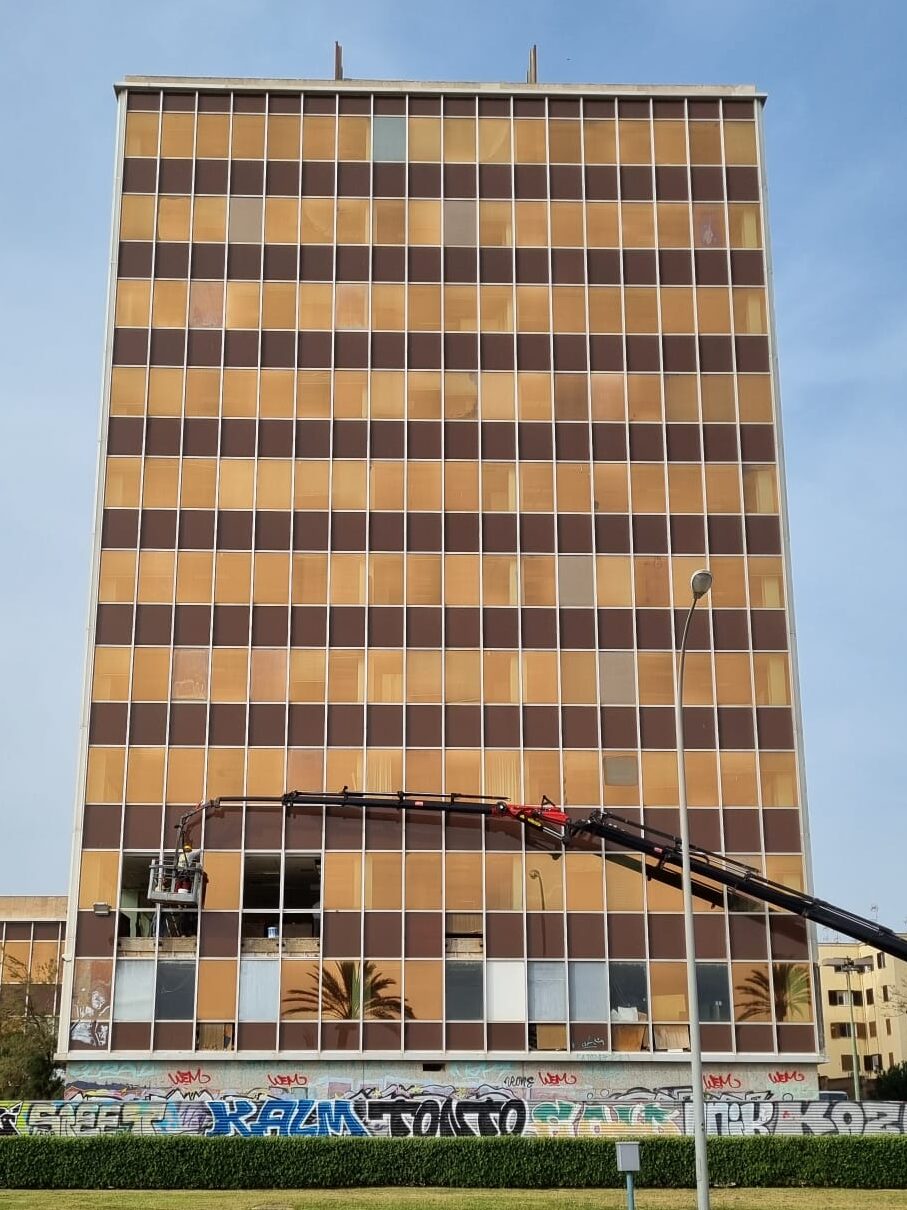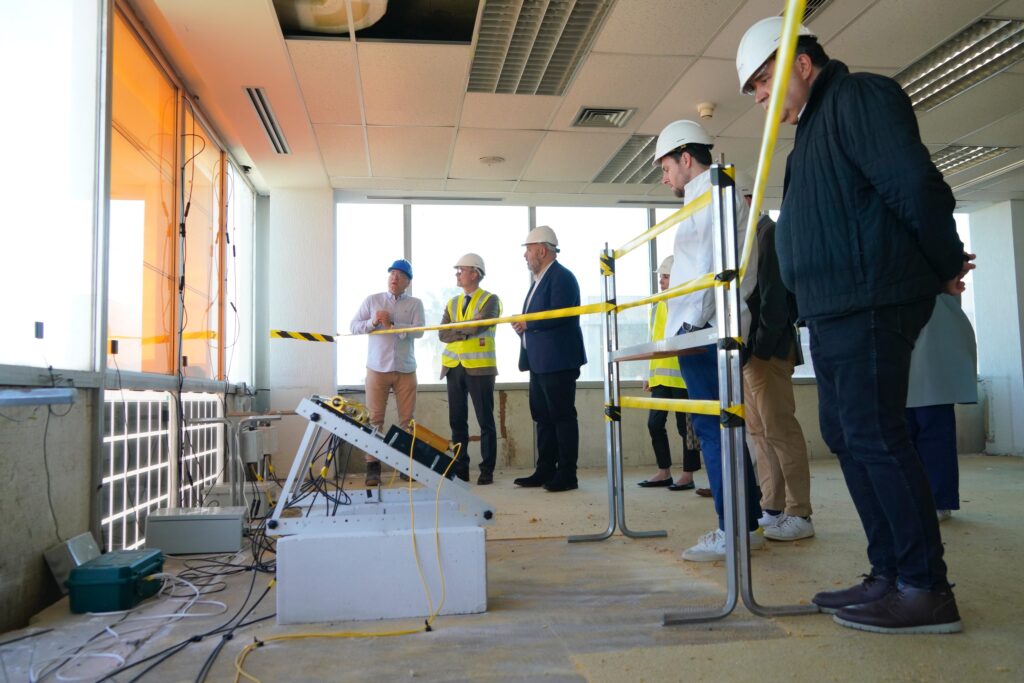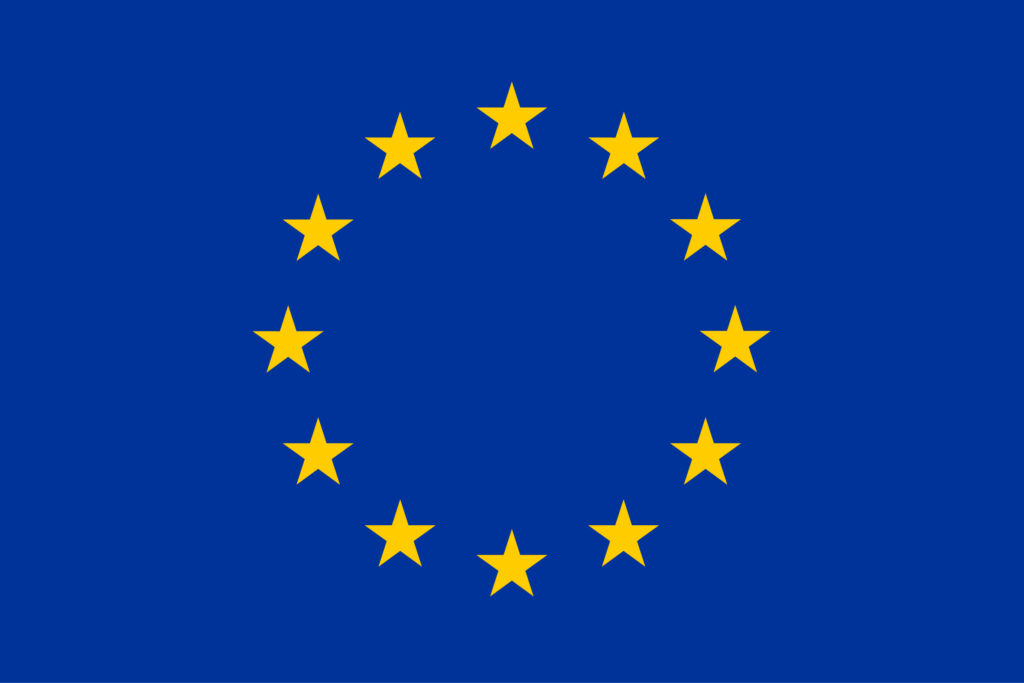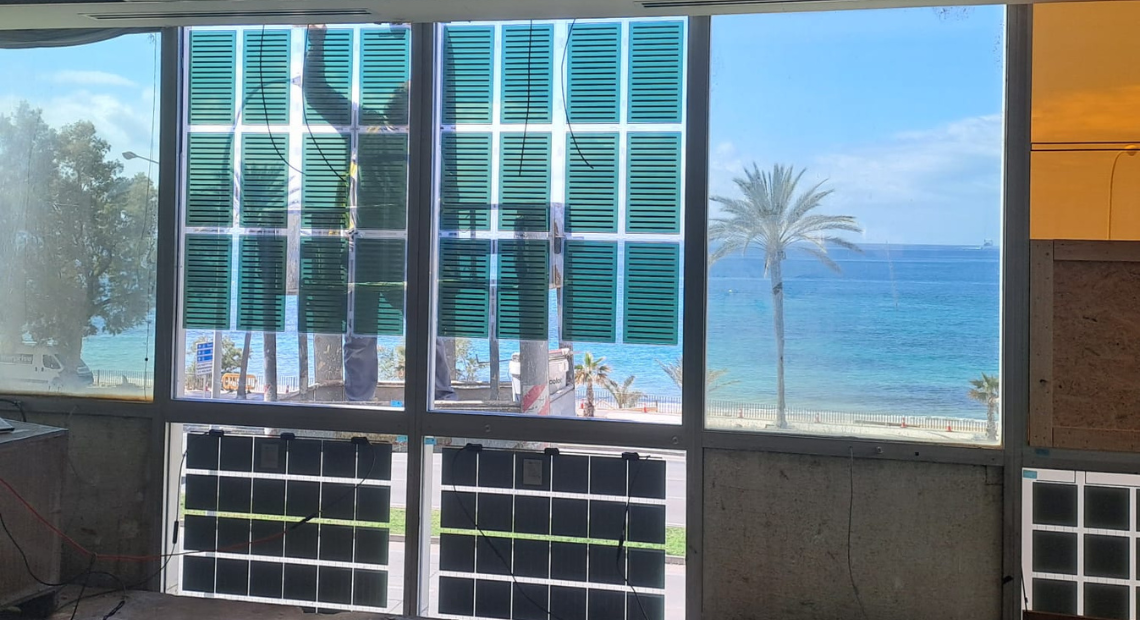IREC is one of the leading partners in the ARV project. The contribution of IREC relies on existing research on Net Zero Energy Buildings and Communities aiming to extend to the effective deployment of Positive Energy Districts in the Mediterranean Climate.
The Catalonia Institute for Energy Research (IREC) has installed different Building Integrated Photovoltaics (BIPV) solutions in the high-rise flagship protected GESA building in Palma, Mallorca. Both opaque and transparent glass-integrated experimental solutions based on different technologies have been tailored, designed, and manufactured to replace eight of the original glasses in the building. With the collaboration of the Palma city council, key partner of the European project ARV , and the continuous support of ENDESA/ENEL as owner of the building, IREC got the permission to install and perform the BIPV tests from the Heritage and Historical Town commissions of the Consell de Mallorca and City council respectively. The BIPV panels will be tested at least for one year to determine the energy performance, architectural integration, and visual aesthetics acceptation. These actions are not only about producing renewable electricity, but also for testing the architectural quality of the different solutions and expected impact on the reduction of solar heat gains, while respecting the overall image and functionality of the building ideated by the architect José Ferragut. A cross-cooperation between the Solar Energy Materials and Systems and the Thermal Energy and Building Performance research groups at IREC led to designing different solutions with worldwide providers and building an innovative monitoring system.
Additionally, a detailed energy and economic analysis for the retrofitting of the building has been completed in a collaborative effort with the consulting firm AIGUASOL, also partner of the ARV project.
Born in Palma, the Dr. Jaume Salom as the principal researcher and leader of the initiative, “wants to express its gratitude to the local actors facilitating to complete the installation: the architects Pedro Rabassa and Xavier Fontanet and the company Vidres Fullana and specially the commitment of ENDESA. since the proposal was ideated almost four years ago to cede part of the building to perform the tests, and they made it possible to install it today”. “It is about experimenting with different technologies to show which are the possibilities in a real environment. Nothing is fixed at the moment”, Dr. Jaume Salom added.

Today, the facilities received an official visit from Jaime Martínez, the mayor of Palma, Oscar Garcia, the deputy mayor for urbanism, Martin Ribas, general director of Endesa in the Balearic Islands, Marta Amer, head of strategic projects, Lluc Amengual, director of the ARV project, Maria Magdalena Frau, communication manager of Endesa and Jaume Salom, head of Thermal Energy and Building Performance group at IREC. You can download the related press release from Palma Council here:

About the demo district in Palma
The Spanish demo case is the Llevant Innovation District (Districte Innovació Llevant) in Palma de Mallorca. It encompasses a mixed used development 93 ha area including residential, tertiary, and educational buildings, with both new constructions and renovation activities. The set of actions that will be undertaken by the ARV project will involve resource efficient renovation processes and district energy analysis and operation, highlighting social, educational, and digital aspects to enhance citizens involvement.
The activities in the demo in Palma will become a reality thanks to the fruitful collaboration between the stakeholders and citizens acting in the area and the ARV’s local partners, which are:
- The Palma de Mallorca city council
- IBAVI, the Public Company in charge of Social Housing in the Balearic Islands
- METROVACESA, the leading firm in residential development in Spain
- AIGUASOL, an international energy consulting cooperative with more than 20 year’s experience
- IREC, the Catalonia Institute for Energy Research
About the ARV project
The ARV project has received 20M euros in funding from the EU’s Green Deal call to research climate positive circular communities in Europe. The project will provide guidelines and a political framework for future energy-efficient and circular solutions in the construction industry, establishing 6 climate-positive areas around Europe at the project’s core.
The name ARV comes from Norwegian and means “heritage” or “legacy”. It reflects the emphasis on circularity, a key aspect in reaching the project’s main goal of boosting the building renovation rate in Europe. The consortium is formed by 35 partners from 7 European countries, and the coordinator is the Norwegian University NTNU. The project started in 2022 and will last until the end of 2025.
This project has received funding from the European Union’s H2020 research and innovation programme under grant agreement number 101036723.




